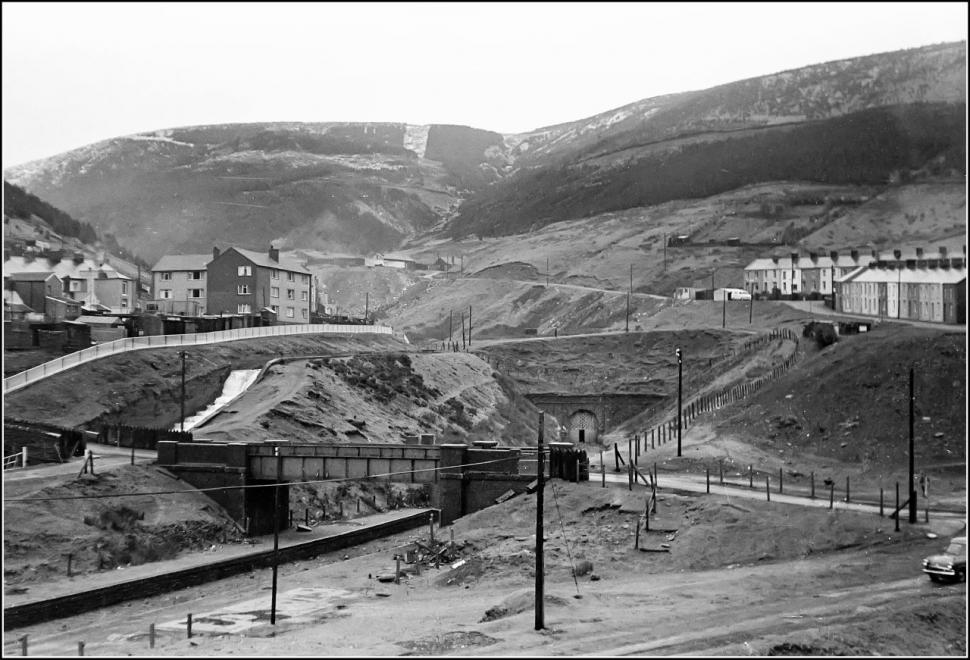- News
- Reviews
- Bikes
- Components
- Bar tape & grips
- Bottom brackets
- Brake & gear cables
- Brake & STI levers
- Brake pads & spares
- Brakes
- Cassettes & freewheels
- Chains
- Chainsets & chainrings
- Derailleurs - front
- Derailleurs - rear
- Forks
- Gear levers & shifters
- Groupsets
- Handlebars & extensions
- Headsets
- Hubs
- Inner tubes
- Pedals
- Quick releases & skewers
- Saddles
- Seatposts
- Stems
- Wheels
- Tyres
- Tubeless valves
- Accessories
- Accessories - misc
- Computer mounts
- Bags
- Bar ends
- Bike bags & cases
- Bottle cages
- Bottles
- Cameras
- Car racks
- Child seats
- Computers
- Glasses
- GPS units
- Helmets
- Lights - front
- Lights - rear
- Lights - sets
- Locks
- Mirrors
- Mudguards
- Racks
- Pumps & CO2 inflators
- Puncture kits
- Reflectives
- Smart watches
- Stands and racks
- Trailers
- Clothing
- Health, fitness and nutrition
- Tools and workshop
- Miscellaneous
- Buyers Guides
- Features
- Forum
- Recommends
- Podcast
 Blaengwynfi station and the entrance to the tunnel before it was filled in (CC BY 2.0 Ben Salter:Flickr)
Blaengwynfi station and the entrance to the tunnel before it was filled in (CC BY 2.0 Ben Salter:Flickr)Bat survey edges Rhondda Tunnel closer to realisation
A bat survey has taken place on what could become Wales’ longest walking and cycling tunnel and, according to one estimate, yield economic benefits of £14.3m over 30 years.
The bat survey on the Rhondda Tunnel is the latest step forward in a project to link two valleys with a cycling and walking route, after the project was given the green light to estimate final construction costs and apply for planning permission last month.
Last year the Rhondda Tunnel Society earned the backing of Welsh Assembly Members in its bid to reopen Wales’ longest tunnel for cyclists and walkers, which runs from Blaencwm in the Rhondda Valley to Blaengwynfi in the Afan Valley. The former railway tunnel – the longest in Wales – was closed as part of the Beeching cuts in 1968, but it is hoped it could become a tourist attraction if reopened.
Welsh Assembly Members back plans to reopen abandoned railway tunnel for cyclists and walkers
The results of last month's bat survey will reveal the extent of the wildlife inside, and whether a second survey is needed. Rhondda Tunnel Society chairman Stephen Mackey told Wales Online he’s confident of a positive outcome.
“We eagerly await the results and are very confident all is fine.”
Stephen added: “If bats are found to inhabit the tunnel, then a bat friendly habitat roosting place would have to be built in when the tunnel opens, for the bats to use alongside us humans.”
Following the survey photographs were released of the tunnel’s interior.
THIS IS OUR 1000th TWEET So here are 2 exclusive pic's from inside & a colour pic of the Blaencwn end #RhonddaTunnel pic.twitter.com/ekjrgQzuLi
— RhonddaTunnelSociety (@Rhondda_Tunnel) February 1, 2016
A report by Sustrans warned similar projects have proved "a sapping test of resolve", akin to a "steeplechase through a minefield" due to the potential for unforeseen issues cropping up, but said conditions were favourable and the project could yield economic benefits of up to £14.3m over the next 30 years.
The report said: “Our assessment has been estimated that an economic impact of between £7,327,496 and £14,363,652 could be expected over the next 30 years.
“The project would create or support 12.7 jobs for every £1m of investment in sustainable transport infrastructure made.
“To take the project to the next major stage of its development would require an investment of approximately £300,000.
“This is the funding required to obtain planning permission and to calculate a robust final construction cost. This report has not been able to estimate this final cost because of too many unknowns associated with the condition of the tunnel.”
Laura Laker is a freelance journalist with more than a decade’s experience covering cycling, walking and wheeling (and other means of transport). Beginning her career with road.cc, Laura has also written for national and specialist titles of all stripes. One part of the popular Streets Ahead podcast, she sometimes appears as a talking head on TV and radio, and in real life at conferences and festivals. She is also the author of Potholes and Pavements: a Bumpy Ride on Britain’s National Cycle Network.
it wasn't, as the original comments said, a 'close pass'....
I'm disappointed by the colour choice. While I'm not in the hi-vis mafia when it's sunny, my rain jacket must be visible in wet weather. Why isn't...
'Family link to the offence'?...
They've only got two wheels on the road, so it doesn't count as parking in the road.
I agree with essexian - can't think of any reason beyond the council/contractors forgot when they resurfaced the road at some point between 2014...
Superbly put!
Not that I'll be paying £500 but are these the same last as the latest Torch and Torch 3.0? Or an even newer, wider last?
I think you'd need at least 5 metres to park a Tesla.
Judging by Mrs H's admiring remarks about Mr Del Toro's abdominals, it certainly didn't damage the image of the sport in this neck of the woods!
Don't sweat it, as long as you are enjoying it thats all that matters, certainly some turbo work will help, you'll see some impressive gains over...